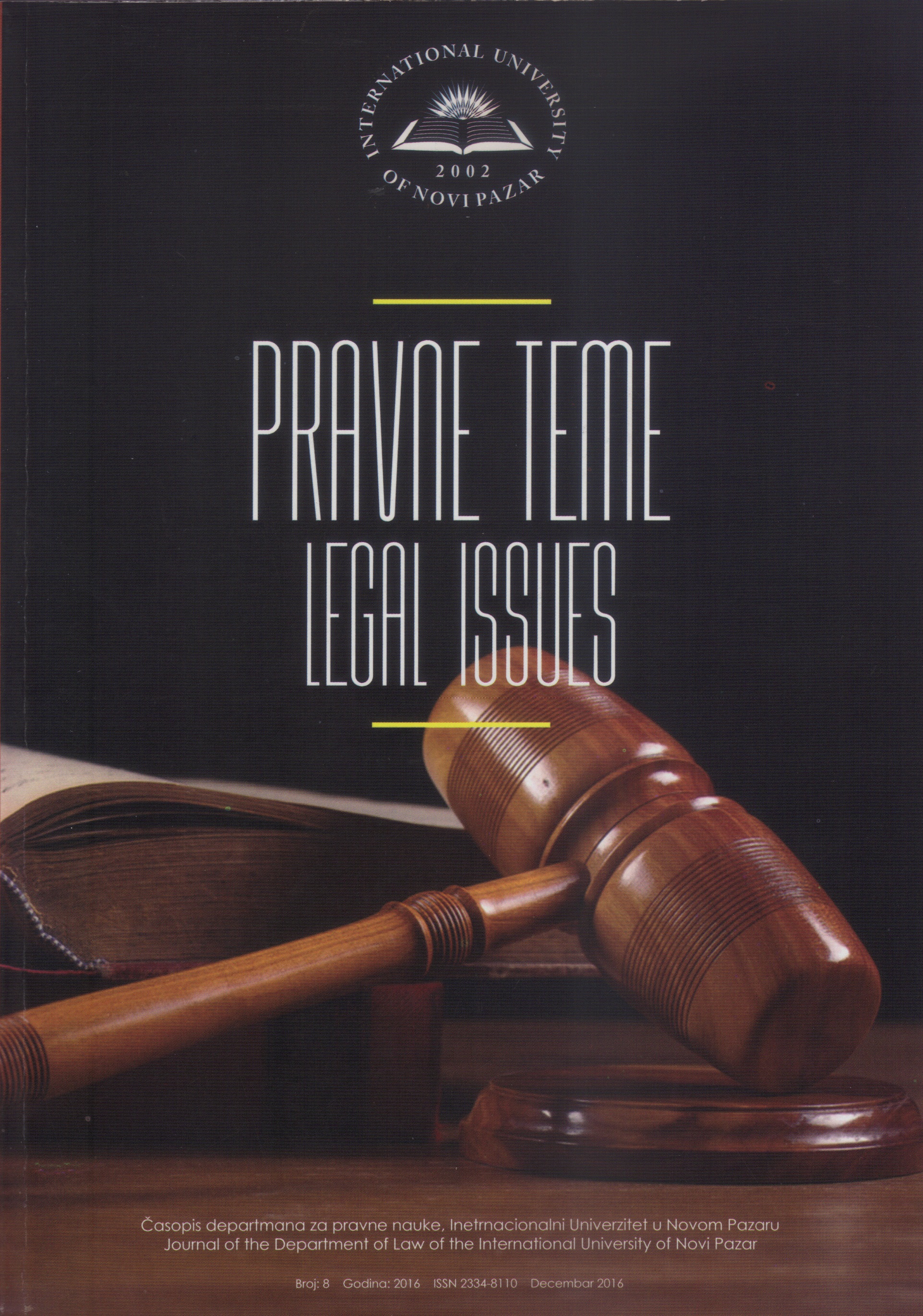HARMONIZACIJA NACIONALNIH ZAKONODAVSTAVA SA PRAVOM EVROPSKE UNIJE (EU)
THE HARMONIZATION OF NATIONAL LEGISLATION WITH EUROPEAN UNION LAW
Author(s): Mirza TotićSubject(s): Law, Constitution, Jurisprudence, EU-Legislation
Published by: Интернационални Универзитет у Новом Пазару
Keywords: European union (EU);institutions;harmonization of national legislation;the acquis communautaire
Summary/Abstract: The paper deals with harmonization of the law of European Union (EU), the unique integration that is based on modern principles such as guarantee of peace, stability, respect for human rights, freedom, equality and democratic relations, not only on the European continent, but also on wider international area. The paper analyses the obligations of organs and institutions of the European Union (EU), to give legal and any other assistance to each Member State in finding timely, uniform and high quality solutions necessary for effective harmonization of national legislation with the European law. The main goal is to highlight the importance and role of individual cases established in European legal practice, legal sources and in the large number of legal acts that comprise the acquis communautaire or the acquis of the European Union (EU), which is today known as European law. The paper offers comments on cases related to Member States, gives the answer on the question how did the countries realized the importance of European law, how and did they accept the fact that the European legal norms are crucial for the survival of complex European family and to what extent they are aware that for the purpose of the correct implementation of mentioned norms the whole system of control and protection was established?The paper imperatively and by legal terminology warns the countries that want full membership in the European Union (EU), that at first place they have to arrange and align their national legislation with the European union law (acquis communautaire), since the same procedure was done by the current Member States. In addition, the fact that the acquis communautaire is constantly expanding has to be taken as a proof that the candidate countries in order to achieve their desired objective must make more efforts than the current Member States did while becaming part of the European family one, two or more decades ago. The paper especially emphasizes the necessary time for the successful completion of the process of harmonization, because it has not been and could not be limited by the calendar, since the processes of accession to the European Union (EU) last long and the legal regulations and manner of harmonization differ from one country to another.
Journal: Pravne teme
- Issue Year: 4/2016
- Issue No: 08
- Page Range: 111-127
- Page Count: 17
- Language: Serbian

